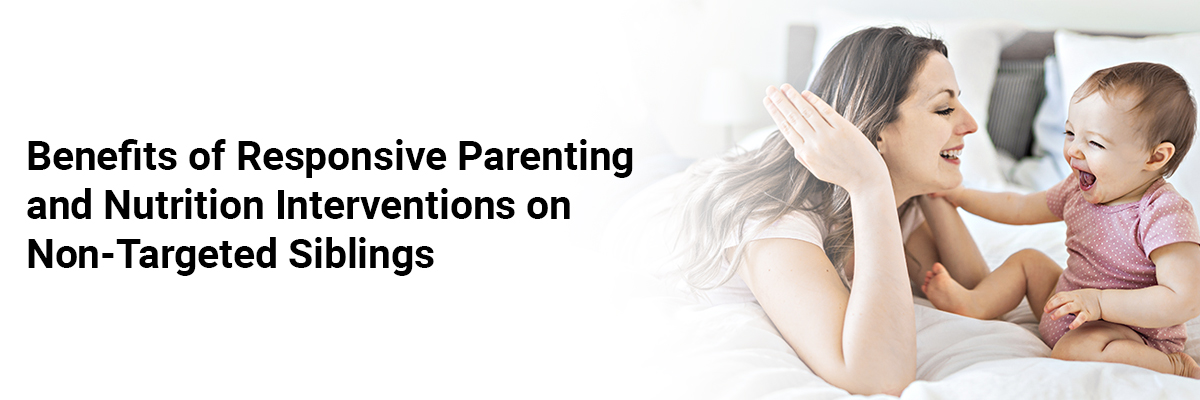
 IJCP Editorial Team
IJCP Editorial Team
Benefits of Responsive Parenting and Nutrition Interventions on Non-Targeted Siblings
A new
study assessed the impact of a bundled parenting and nutrition intervention on
non-targeted siblings (children) within households.
This
intervention was conducted in Mara, Tanzania, and included components of
responsive parenting, infant and young child feeding, and positive couples'
relationships – delivered to parents through community health workers. The
research was part of a larger cluster-randomized trial––involving mothers,
fathers, and one index child under 18 months of age in 80 clusters. In a
sub-study conducted between June and July 2021, 222 households (118 in the
intervention group and 104 in the control group) with another child under 6
years of age (sibling to the index child) were reenrolled from the main trial.
The study compared caregiving practices and child development and nutrition
outcomes among siblings in intervention versus control households.
It was
noted that intervention siblings exhibited improved expressive language
development, dietary intake, and reduced internalizing behaviors compared to
their control counterparts. Additionally, caregivers in the intervention group
reported greater maternal and paternal stimulation and displayed more
responsive caregiving behaviors with sibling children.
Hence, it was inferred that a father-inclusive bundled parenting and nutrition intervention had positive spillover effects on the developmental and nutritional outcomes of non-targeted sibling children within households.
Source: Jeong J,
Domonko V, Mendile T, Yousafzai AK. Pediatrics. 2023 Oct 1;152(4).

IJCP Editorial Team
Comprising seasoned professionals and experts from the medical field, the IJCP editorial team is dedicated to delivering timely and accurate content and thriving to provide attention-grabbing information for the readers. What sets them apart are their diverse expertise, spanning academia, research, and clinical practice, and their dedication to upholding the highest standards of quality and integrity. With a wealth of experience and a commitment to excellence, the IJCP editorial team strives to provide valuable perspectives, the latest trends, and in-depth analyses across various medical domains, all in a way that keeps you interested and engaged.





















Please login to comment on this article